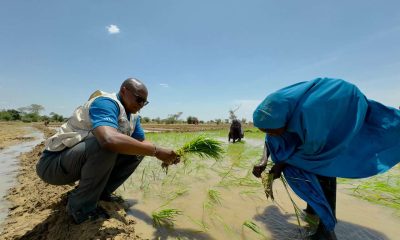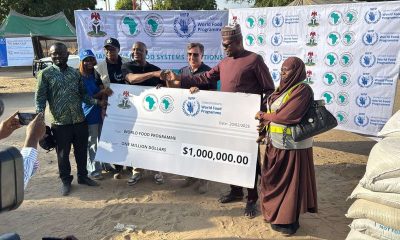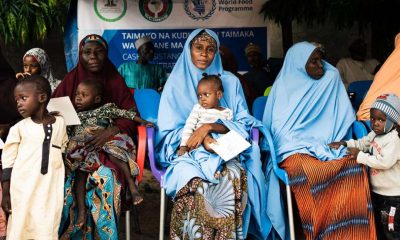Business
Emergency food aid to halt in Nigeria as insecurity, hunger surge

The United Nations World Food Programme (WFP) has announced that it will suspend all emergency food and nutrition support for 1.3 million vulnerable people in northeast Nigeria by the end of July due to a critical funding crisis.
The suspension comes at a time when escalating violence and record levels of hunger have left millions on the brink of starvation.
The WFP revealed that its food and nutrition stocks have been completely depleted, with the last supplies leaving its warehouses in early July. Once the current round of distributions concludes, all life-saving assistance will stop unless urgent funding is secured.
“Nearly 31 million people in Nigeria are now facing acute hunger – the highest number we’ve ever recorded,” said David Stevenson, WFP Country Director for Nigeria. “At the same time, WFP’s operations in northeast Nigeria are at risk of total collapse without immediate and sustained funding. This is no longer just a humanitarian emergency; it’s a growing threat to regional stability as families pushed beyond their limits are left with no alternatives.”
Children will bear the brunt of the looming suspension. Over 150 WFP-supported nutrition clinics across Borno and Yobe states face imminent closure, which would end treatment for more than 300,000 children under the age of two. Without this support, many are at heightened risk of wasting and malnutrition.
In Nigeria’s conflict-ravaged northern regions, violent attacks by extremist groups have triggered widespread displacement. More than 2.3 million people across the Lake Chad Basin have already fled their homes, straining scarce resources and pushing host communities to the edge of survival.
“When emergency food assistance stops, people will have no choice but to migrate in search of food or shelter,” Stevenson warned. “Others might resort to dangerous coping mechanisms – including being drawn into extremist groups – simply to stay alive. Food assistance is often the barrier that prevents such outcomes. It not only feeds families but also supports local economies and recovery efforts.”
During the first half of 2025, WFP managed to deliver critical aid to 1.3 million people in northern Nigeria, helping to stave off a worsening hunger crisis. Plans were in place to extend assistance to an additional 720,000 people in the second half of the year. However, these efforts are now in jeopardy due to a severe funding shortfall.
The WFP says it needs at least US$130 million to resume operations and sustain food and nutrition assistance through the end of 2025. Without this, the humanitarian response will grind to a halt, leaving millions of Nigerians facing impossible choices.
WFP stressed that it has both the expertise and infrastructure to scale up its operations rapidly, but without immediate donor support, hunger in northeast Nigeria will spiral further out of control.












